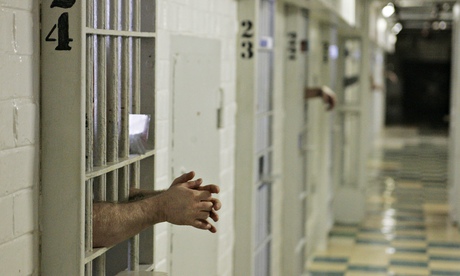Monday, March 09, 2015
igziabeher - let jah be praised...,
By
CNu
at
March 09, 2015
0
comments
![]()
Labels: Ass Clownery , theoconservatism
Friday, March 06, 2015
kashrut law
By
CNu
at
March 06, 2015
0
comments
![]()
Labels: food , History's Mysteries , Race and Ethnicity , theoconservatism , What IT DO Shawty...
Wednesday, February 18, 2015
what is the islamic state?
By
CNu
at
February 18, 2015
0
comments
![]()
Labels: resource war , theoconservatism
Saturday, February 07, 2015
this crusade, this war on terrorism is going to take a while...,
By
CNu
at
February 07, 2015
2
comments
![]()
Labels: Living Memory , Obamamandian Imperative , theoconservatism
Wednesday, February 04, 2015
musical chairs: bass, faces, races in american public spaces
Two Duke students tell us how all of this got started, then three experts consider the deeper issues: the proper role of Islam in the public square, why the Muslim call to prayer makes some people nervous, and even the wisdom of using one holy space for two different religions.
Rachael Clark, member of Duke's Presbyterian Campus Ministry
Noura Elsayed, member of Duke's Muslim Student Association
Mollie Hemingway, senior editor at The Federalist
Nihad Awad, Executive Director and Founder of the Council on American-Islamic Relations
Isaac Weiner, author of Religion Out Loud: Religious Sound, Public Space, and American Pluralism
By
CNu
at
February 04, 2015
4
comments
![]()
Labels: clampdown , Race and Ethnicity , theoconservatism
Monday, February 02, 2015
can softheaded yahoos and dingalings be scholastically maneuvered through their cognitive bottlenecks?
By
CNu
at
February 02, 2015
8
comments
![]()
Labels: the wattles , theoconservatism , What IT DO Shawty...
Tuesday, November 18, 2014
surprise, surprise, demoted former highest-ranking american cardinal raymond burke was the archbishop of st. louis...,
By
CNu
at
November 18, 2014
0
comments
![]()
Labels: Ass Clownery , theoconservatism
Wednesday, November 12, 2014
pope's deratzingerization on and popping...,
By
CNu
at
November 12, 2014
0
comments
![]()
Labels: the wattles , theoconservatism
teh'geh coming to grips with the church of rome....,
By
CNu
at
November 12, 2014
0
comments
![]()
Labels: cognitive infiltration , institutional deconstruction , theoconservatism
Monday, October 06, 2014
hajj will not be an ebola propagation vector...,
By
CNu
at
October 06, 2014
0
comments
![]()
Labels: The Straight and Narrow , theoconservatism , What IT DO Shawty...
Sunday, September 28, 2014
"legitimate" penological interest decided by a mailroom clerk...,
By
CNu
at
September 28, 2014
0
comments
![]()
Labels: the wattles , theoconservatism
Monday, September 08, 2014
mass-produced Jesus in throwaway petroleum vessels...,
Celebrate Communion prefilled cups have a delicious, improved taste. Advances in technology and manufacturing process make this unique cup even better than before with nearly twice the shelf-life. As always, this exceptional quality product does not require refrigeration, but now lasts over 10 months when stored in a cool, dry location. This can be a great savings because it allows you to order larger quantities at one time, significantly reducing shipping costs.
By
CNu
at
September 08, 2014
0
comments
![]()
Labels: priceless.... , theoconservatism
Wednesday, September 03, 2014
the great nunquisition: why the vatican is cracking down on sisters
Nuns are an endangered species. They are dying and not being replaced.
If you think the news is bad now, a world without nuns would be a far worse place. The nuns that I know are much too humble to tout their achievements and all of the good they contribute to society, but make no mistake, they are an integral part of the fabric that holds our civilization together.
In 2014 there were just 49,883 religious Catholic sisters in the United States, down 13% percent from 2010 according to figures from the Center for Applied Research in the Apostolate. To put it in greater perspective, that is a 72% decline since 1965.
Because nuns don’t brag about all of the good that they do or hashtag how awesome they are on Facebook, many people have no idea about the things they accomplish on a daily basis.
You probably haven’t heard about Sister Joan Dawber. Sister Joan, a Sister of Charity of Halifax, runs a safe house in Queens for victims of human trafficking—former sex and labor slaves. She takes these women in when they have no one else to protect them and risks her life to help them rebuild theirs.
About 20 minutes away by car from Sister Joan’s safe house, Sister Tesa Fitzgerald works tirelessly to raise the children of mothers who are incarcerated. When those women get out of prison Sister Tesa helps them get clothes, jobs and an apartment. Those women credit Tesa with nothing less than saving their lives.
Most people don’t know about Sister Nora Nash, a Franciscan Sister who lives just outside of Philadelphia. As her order’s Director of Corporate Social Responsibility, Sister Nora wakes up every single morning determined to make corporations more responsible to the human race. Sister Nora and her assistant director, Tom McCaney have taken to task the grocery store chain Kroger over the rights of farm workers, Hershey’s chocolate company over child labor, McDonald’s over childhood obesity, Walmart on raising their minimum wage and Wells Fargo over predatory lending practices. Nash wakes up every single morning determined to make corporations more responsible to the human race. Then she follows through on it.
For more than four decades Sister Jeannine Gramick has been tireless in her fight for gay rights through her organization New Ways, despite coming under intense scrutiny from the Vatican.
Sister Dianna Ortiz made headlines in 1989 when she was abducted, tortured and raped while working as a teacher in Guatemala. After living through that horror, instead of allowing herself to sink into a terrible depression, she headed up an organization to help thousands of torture survivors around the globe find the will to keep living.
It’s a problem that you haven’t heard about these women. You would think that, during a time when the Church has suffered from great criticism and weathered very public scandals, it would be celebrating these incredible achievements. Think again.
By
CNu
at
September 03, 2014
0
comments
![]()
Labels: de-evolution , Pimphand Strong , theoconservatism
Wednesday, July 23, 2014
children exposed to religion have difficulty distinguishing fact from fiction...,
By
CNu
at
July 23, 2014
18
comments
![]()
Labels: the wattles , theoconservatism , What IT DO Shawty...
Sunday, July 06, 2014
catholic church institutionally complicit in much of the southern border suffering...,
By
CNu
at
July 06, 2014
0
comments
![]()
Labels: the wattles , theoconservatism , What IT DO Shawty...
Sunday, June 15, 2014
isis could clean up the hood and the trailer park quick, fast, and in a hurry...,
By
CNu
at
June 15, 2014
0
comments
![]()
Labels: clampdown , contraction , governance , medieval , Pimphand Strong , theoconservatism
Monday, June 02, 2014
islam INFINITELY preferable to these backward-assed lynch mobs...,
By
CNu
at
June 02, 2014
0
comments
![]()
Labels: killer-ape , the wattles , theoconservatism
Thursday, April 03, 2014
publicly funded schools where creationism is taught...,
By
CNu
at
April 03, 2014
0
comments
![]()
Labels: de-evolution , the wattles , theoconservatism
Sunday, March 16, 2014
climate change is god's plan...,
By
CNu
at
March 16, 2014
0
comments
![]()
Labels: the wattles , theoconservatism , weather report
Saturday, February 01, 2014
Alexandre Saint-Yves Alveydre
By
CNu
at
February 01, 2014
0
comments
![]()
Labels: as above-so below , History's Mysteries , theoconservatism
H.R. 6408 Terminating The Tax Exempt Status Of Organizations We Don't Like
nakedcapitalism | This measures is so far under the radar that so far, only Friedman and Matthew Petti at Reason seem to have noticed it...
-
theatlantic | The Ku Klux Klan, Ronald Reagan, and, for most of its history, the NRA all worked to control guns. The Founding Fathers...
-
Video - John Marco Allegro in an interview with Van Kooten & De Bie. TSMATC | Describing the growth of the mushroom ( boletos), P...
-
Farmer Scrub | We've just completed one full year of weighing and recording everything we harvest from the yard. I've uploaded a s...









